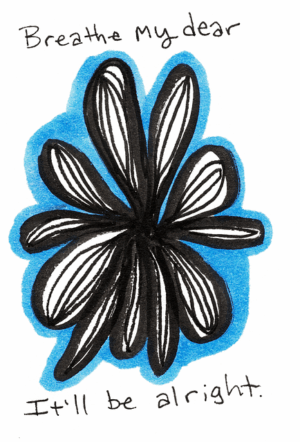Cognitive Behavioral Therapy (CBT) is an effective, evidence-based approach to managing mental health challenges by targeting negative thought patterns and behaviors. Through techniques like cognitive restructuring, mindfulness, and behavioral activation, CBT empowers individuals to challenge distorted thinking, adopt realistic perspectives, and develop adaptive coping strategies. This enhances self-awareness, resilience, emotional management, and long-lasting benefits for navigating psychological obstacles with greater ease.
Cognitive techniques for coping have emerged as powerful tools in maintaining mental well-being. This article delves into the intricacies of these techniques, starting with an understanding of cognitive coping and its role in enhancing resilience. We explore key approaches like Cognitive Behavioral Therapy (CBT) and its impact on mental health. Learn about identifying negative thought patterns, challenging distorted thoughts, reframing for positive outcomes, and the benefits of mindfulness. Discover practical ways to integrate CBT into daily life, boosting mood and overall well-being.
Understanding Cognitive Techniques for Coping

Cognitive techniques for coping play a pivotal role in helping individuals navigate life’s challenges and manage their mental health effectively. These techniques, often rooted in evidence-based practices like CBT (Cognitive Behavioral Therapy) therapy, focus on challenging and changing negative thought patterns and behaviors. By doing so, they empower people to develop healthier perspectives and more adaptive coping strategies.
One of the key aspects of cognitive techniques is identifying and modifying distorted thinking. CBT teaches individuals to recognize irrational or unhelpful thoughts, replace them with more realistic alternatives, and subsequently alter their emotional responses. This process involves active participation in challenging one’s own beliefs and understanding, fostering a deeper sense of self-awareness and resilience.
The Role of CBT Therapy in Mental Well-being

CBT therapy, or Cognitive Behavioral Therapy, is a powerful tool in the pursuit of mental well-being. It focuses on challenging and changing negative thought patterns and behaviors that contribute to stress, anxiety, and depression. By identifying distorted thinking and replacing it with more realistic and adaptive thoughts, CBT empowers individuals to manage their emotions effectively. This process involves learning specific coping strategies, such as problem-solving skills, relaxation techniques, and effective communication methods.
Through CBT therapy, individuals can gain a deeper understanding of the connection between their thoughts, feelings, and behaviors. It encourages active participation in one’s own mental health journey, helping them develop resilience against psychological distress. The structured nature of CBT provides a clear framework for managing symptoms, offering long-lasting benefits that extend beyond the therapy sessions.
Identifying Negative Thought Patterns

Negative thought patterns are a common obstacle to maintaining a positive mindset and emotional well-being. Cognitive Behavioral Therapy (CBT) offers powerful tools to identify and challenge these unhelpful thoughts. By becoming aware of recurring negative thoughts, individuals can start to recognize cognitive distortions such as all-or-nothing thinking, catastrophizing, or jumping to conclusions.
Through self-reflection and sometimes the guidance of a therapist, one can learn to question these thoughts and replace them with more balanced perspectives. This process involves examining evidence for and against the negative thought, considering alternative explanations, and adopting a more realistic and constructive viewpoint.
Challenging and Changing Distorted Thoughts

Cognitive Behavioral Therapy (CBT) offers powerful tools for challenging and changing distorted thoughts, a core aspect of many mental health challenges. This process involves identifying automatic negative thoughts and evaluating their validity. By questioning the evidence for these thoughts, individuals can often uncover underlying biases and irrational beliefs that contribute to negative emotions and behaviors.
For example, someone with anxiety might have a persistent thought like “I’m going to fail this test.” CBT encourages them to examine this belief, considering alternative explanations like past successes or the likelihood of improved preparation. This reappraisal leads to more balanced thinking, reducing anxiety symptoms and fostering resilience in the face of challenging situations.
Reframing Thoughts for Positive Outcomes

Reframing thoughts is a powerful cognitive technique often utilized in CBT therapy. It involves changing your perspective on negative or stressful situations, transforming them into more positive and constructive ones. For example, instead of dwelling on a failed task, reframing could encourage you to view it as a valuable learning opportunity that will help you succeed in future endeavors. This simple shift in mindset can significantly impact one’s emotional well-being and overall coping strategies.
By consciously changing the way you interpret events, you gain control over your emotions and behaviors. Positive reframing helps build resilience by allowing individuals to see challenges as obstacles to overcome rather than insurmountable hurdles. It encourages a more optimistic outlook, fostering a sense of empowerment and adaptability in the face of adversity. This cognitive technique is a valuable tool for anyone seeking to enhance their mental health and overall coping abilities through self-awareness and positive psychological strategies.
Mindfulness and Its Impact on Cognitive Coping

Mindfulness, a cornerstone of Cognitive Behavioral Therapy (CBT) and various meditation practices, is a powerful tool in cognitive coping. It involves training one’s awareness to the present moment, observing thoughts and emotions without judgment. By cultivating mindfulness, individuals can develop a greater understanding of their thought patterns and gain distance from automatic negative responses. This practice encourages a more conscious approach to managing stress and difficult emotions.
The impact of mindfulness on cognitive coping is significant. It helps individuals become more aware of cognitive distortions, such as all-or-nothing thinking or catastrophizing. With regular practice, one can learn to recognize these patterns early, challenge their validity, and replace them with more balanced perspectives. This process fosters resilience, enhances emotional regulation, and promotes a healthier relationship with thoughts and feelings, ultimately leading to improved coping strategies.
Using Behavioral Activation to Boost Mood

Behavioral Activation, a key technique within Cognitive Behavioral Therapy (CBT), is a powerful tool for boosting mood and combating depression. It encourages individuals to engage in activities that promote well-being and provide a sense of purpose. By focusing on behavior rather than thoughts or emotions alone, this approach helps break negative cycles. Individuals are guided to identify activities they once enjoyed but have avoided due to low mood or lack of energy, and then gradually reintegrate these into their daily routines.
This strategy not only improves symptoms of depression but also fosters a sense of accomplishment and increased life satisfaction. Through Behavioral Activation, individuals learn to recognize and challenge unhelpful beliefs that may have contributed to avoidance behaviors, ultimately leading to more positive emotional states and improved coping mechanisms.
Practical Application of Cognitive Techniques

Cognitive techniques, such as those employed in CBT therapy, offer practical tools for daily coping. This involves identifying and challenging negative thought patterns and replacing them with more realistic and positive ones. For instance, if someone struggles with anxiety, they might learn to recognize and reframe catastrophic thoughts, preventing them from spiraling into overwhelming worry. By practicing this, individuals can gain a sense of control over their emotions.
These techniques are applicable in various situations, from managing stress at work to dealing with interpersonal conflicts. They encourage self-awareness, helping people understand the connection between thoughts, feelings, and behaviors. With regular practice, cognitive coping strategies become second nature, enabling individuals to navigate challenging situations with enhanced emotional resilience.
Integrating CBT Therapy into Daily Life

Integrating Cognitive Behavioral Therapy (CBT) techniques into daily life is a powerful way to manage stress, anxiety, and other mental health challenges. CBT focuses on identifying and changing negative thought patterns and behaviors that contribute to distress. By understanding how these thoughts and actions impact your emotions, you can start to challenge and replace unhelpful beliefs with more realistic and positive ones.
This integration begins with awareness; paying attention to your thoughts and feelings throughout the day. Keep a journal to track recurring negative thoughts and identify triggers. Once identified, you can begin to experiment with different CBT strategies like cognitive restructuring, where you replace negative thoughts with balanced alternatives. Additionally, behavioral activation involves scheduling activities that promote positive emotions, fostering a healthier daily routine.
